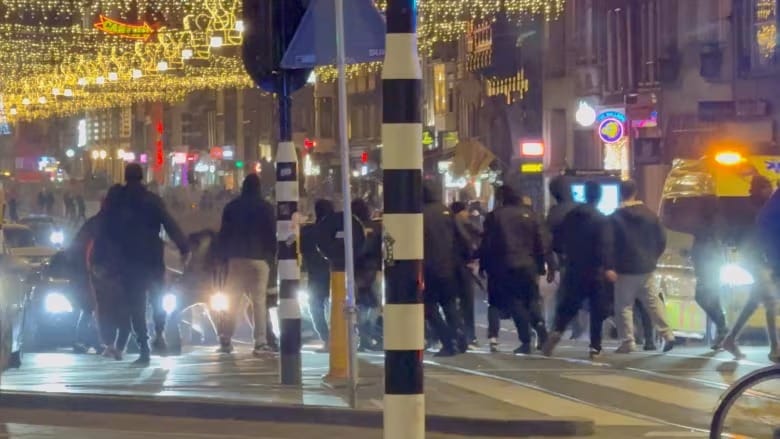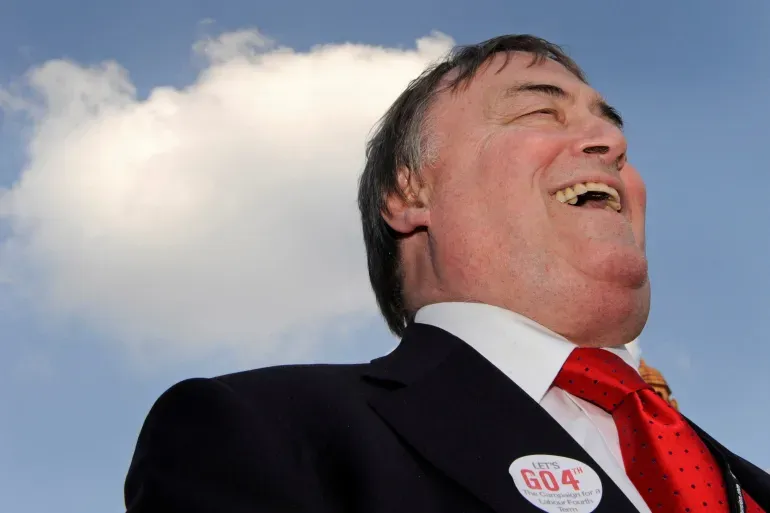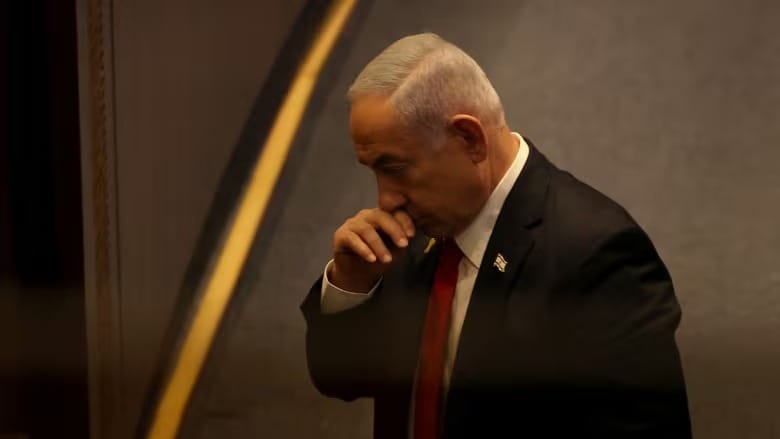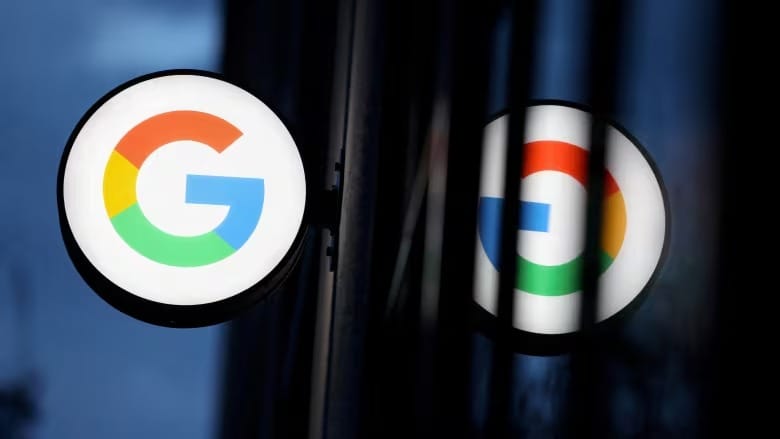A clearer picture is slowly emerging of the violence involving soccer fans in Amsterdam
Dutch authorities tone down some, but not all, of the characterizations of the violence as antisemitic

A week after violence broke out in the streets of Amsterdam targeting Israeli soccer fans, sparking accusations of a "Jew hunt" in a city with a troubling history of antisemitism, a clearer understanding of the events is beginning to emerge.
The violence unfolded before, during, and after a soccer match on November 7 between Israeli team Maccabi Tel Aviv and local Amsterdam club Ajax, with over 2,800 Israeli fans traveling to the city for the game.
At a news conference the following day, Amsterdam Mayor Femke Halsema blamed local rioters, describing them as "hateful, antisemitic criminals" who attacked Jewish and Israeli visitors. Dutch Prime Minister Dick Schoof condemned the "unacceptable antisemitic attacks," while King Willem-Alexander acknowledged his country’s failure to protect Jews during World War II, saying it had failed them again. Israeli President Isaac Herzog referred to the violence as a "pogrom."
A total of 62 people were initially arrested, and five were hospitalized. Dutch police reported that five more arrests were made afterward.
However, a report released earlier this week by the mayor's office, based on police investigation findings, presents a more complex picture. It indicates that Israeli fans initiated the first attacks, which then escalated.
According to the 10-page document addressed to council members, the first serious incident occurred at midnight on November 7, when 50 Maccabi fans removed a Palestinian flag from a building in the city center. Some of these fans then moved on to the red-light district, where they attacked a taxi, and others vandalized additional taxis nearby.
The taxi drivers communicated and organized a response, leading to a confrontation with about 400 Israeli fans, requiring police to intervene and separate the two groups.
The report acknowledges social media posts suggesting that many of those involved in the confrontations were young people of Moroccan descent, but it does not confirm their ethnicity.
The report also notes that local officials were so concerned about the aggression from Maccabi supporters and the taxi drivers’ reactions that there was a discussion about canceling the match, though it was ultimately allowed to proceed.
Tensions continued to rise throughout the day on November 7, with Israeli supporters setting off fireworks in Dam Square. Social media posts took on a more hostile tone, with "antisemitic" language appearing.
One widely circulated video shows Maccabi fans entering an Amsterdam metro station later that evening, shouting racist slogans such as "Let the IDF win" and "F--k the Arabs." Although the report doesn’t specifically mention this video or its timing, the tensions continued to grow.
Despite the escalating tension, the Maccabi fans attended the match with minimal incident. However, after the game, the situation deteriorated, with some Maccabi supporters vandalizing property in and around the city center. Other groups then carried out "violent hit and run" attacks on Israelis, using mopeds and motorcycles.
In response, police gathered the Maccabi supporters at various locations for their safety and arranged buses to take them back to their hotels.
Israeli officials, alarmed by the violence, became involved, with Israel’s ambassador to the Netherlands contacting Dutch authorities. Israeli officials reported that many Maccabi fans were so afraid they locked themselves in their hotel rooms, though police found few individuals outside posing a threat when they investigated.
By Friday, most of the Israeli fans had left the Netherlands, with most departing by Saturday morning.
Despite the ban on demonstrations imposed by Dutch authorities, pro-Palestinian protests continued throughout the week, culminating in more than 280 arrests on Wednesday night.
While Dutch police said their heightened presence prevented further violence over the weekend, they reported several other antisemitic incidents. In one case, a Dutch taxi driver demanded that a passenger reveal if they were Israeli. In another, a Jewish man was reportedly ejected from a taxi.
A total of 62 arrests were made before, during, and after the match. Of those arrested, 49 were Dutch or residents of the Netherlands, while 10 were Israeli. Most of those arrested were released, though three teenagers and one 26-year-old remained in custody for a longer period.
In the wake of the violence, Dutch authorities canceled the annual Kristallnacht commemoration, remembering the night in November 1938 when Nazi rioters attacked Jewish people, their homes, businesses, and synagogues.
The report also tempered Mayor Halsema's earlier statement, which had blamed only "antisemitic" rioters for the violence. It explained that the events were the result of a combination of antisemitism, hooliganism, and anger over the Israeli-Palestinian conflict. The report acknowledged that such incidents were not limited to Jews but increasingly involved Muslims, Palestinians, and other minority groups.
Jazie Veldhuyzen, an Amsterdam city councilor, claimed that Dutch officials and politicians had exaggerated the soccer violence for political purposes. He argued that right-wing politicians, including the prime minister, used the riots to target migrants.
Veldhuyzen, who supports Palestinian efforts against the Israeli occupation, said that the violence was not about a targeted "Jew hunt." Rather, he suggested that Maccabi fans attacked people, particularly Arabs, and the retaliation came from the other side.
Dutch Jewish groups, however, dispute this interpretation. Naomi Mestrum, director of the Center for Information and Documentation Israel, argued that the violence against Israeli fans was premeditated. She pointed to earlier reports from taxi drivers who had expressed hostility toward Jews, saying they would "hunt for Zionists."
Mestrum said that while Maccabi fans’ actions were inexcusable, they should not be used as an excuse to target Jews. "It’s not an excuse to go Jew hunting," she said. "It’s not an excuse to ask people who look Middle Eastern for their passport."
In the aftermath, Dutch authorities have taken several steps to prevent further violence, including a ban on demonstrations. However, pro-Palestinian groups have continued to protest in defiance of the ban, with over 280 arrests made by mid-week.
Israeli officials have expressed frustration that there have been few arrests relating to violence against Maccabi fans. Dutch police continue to investigate, reviewing security camera footage to identify those responsible, and an independent investigation into the events and the authorities' actions is underway.





